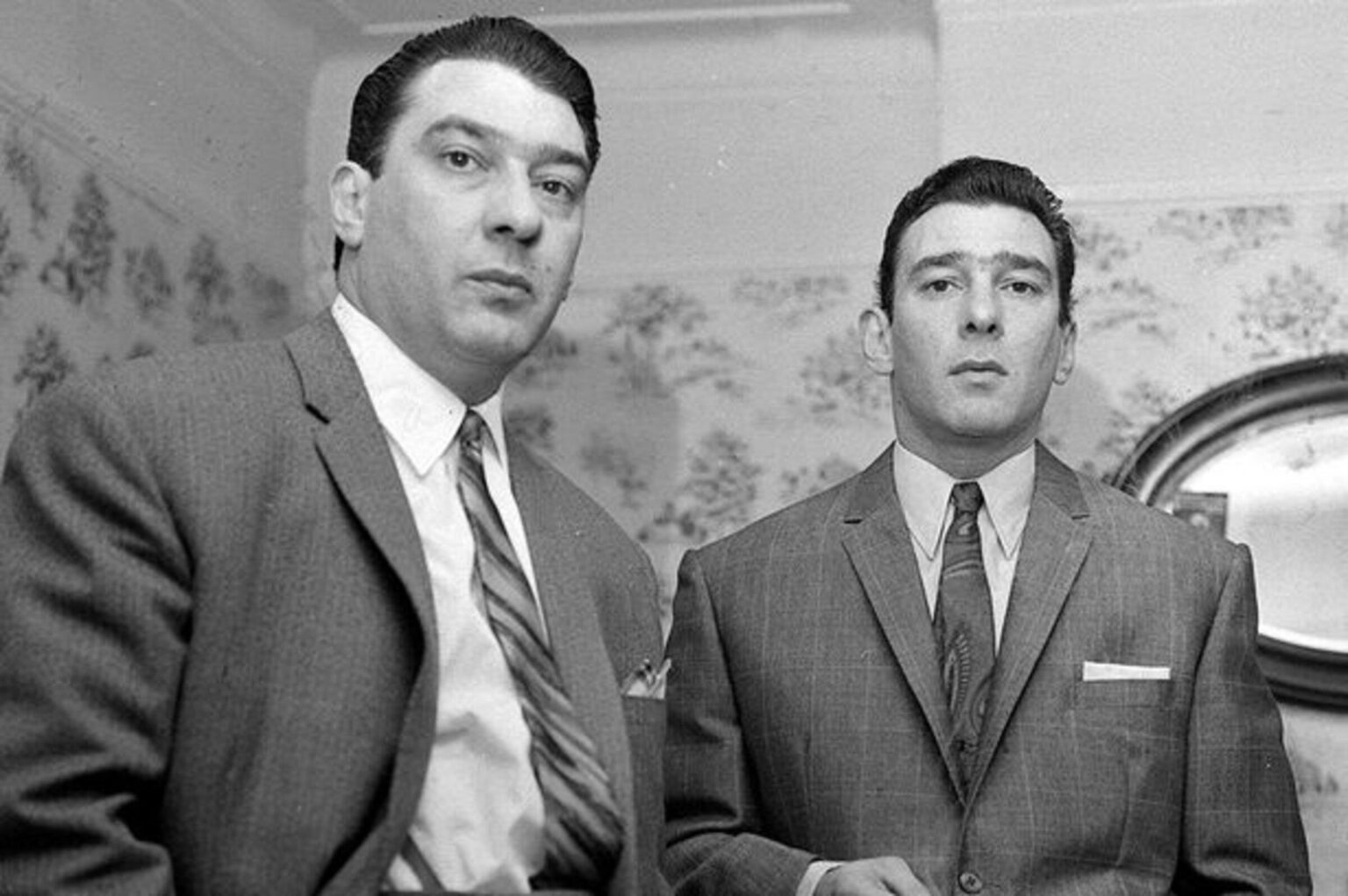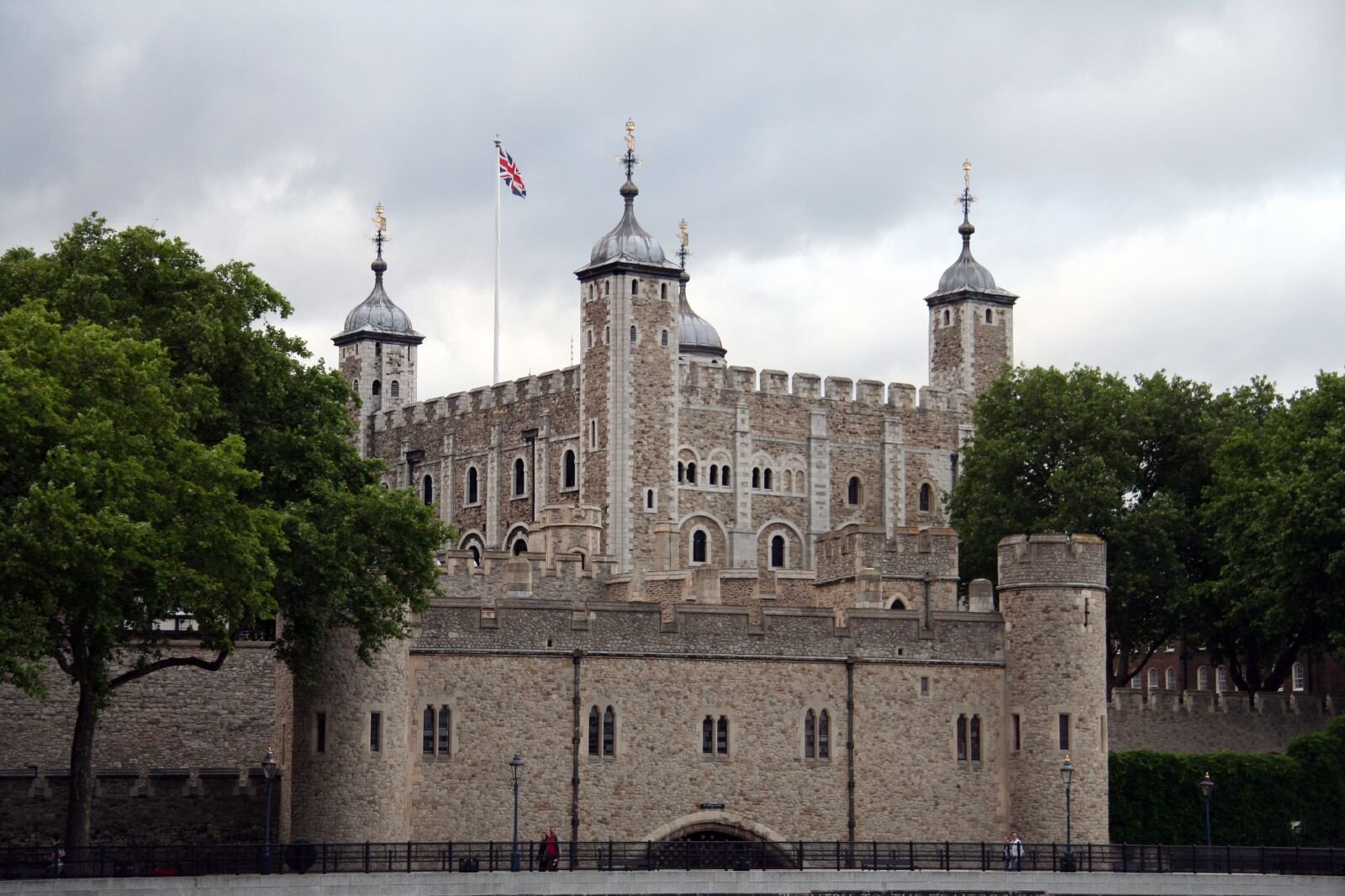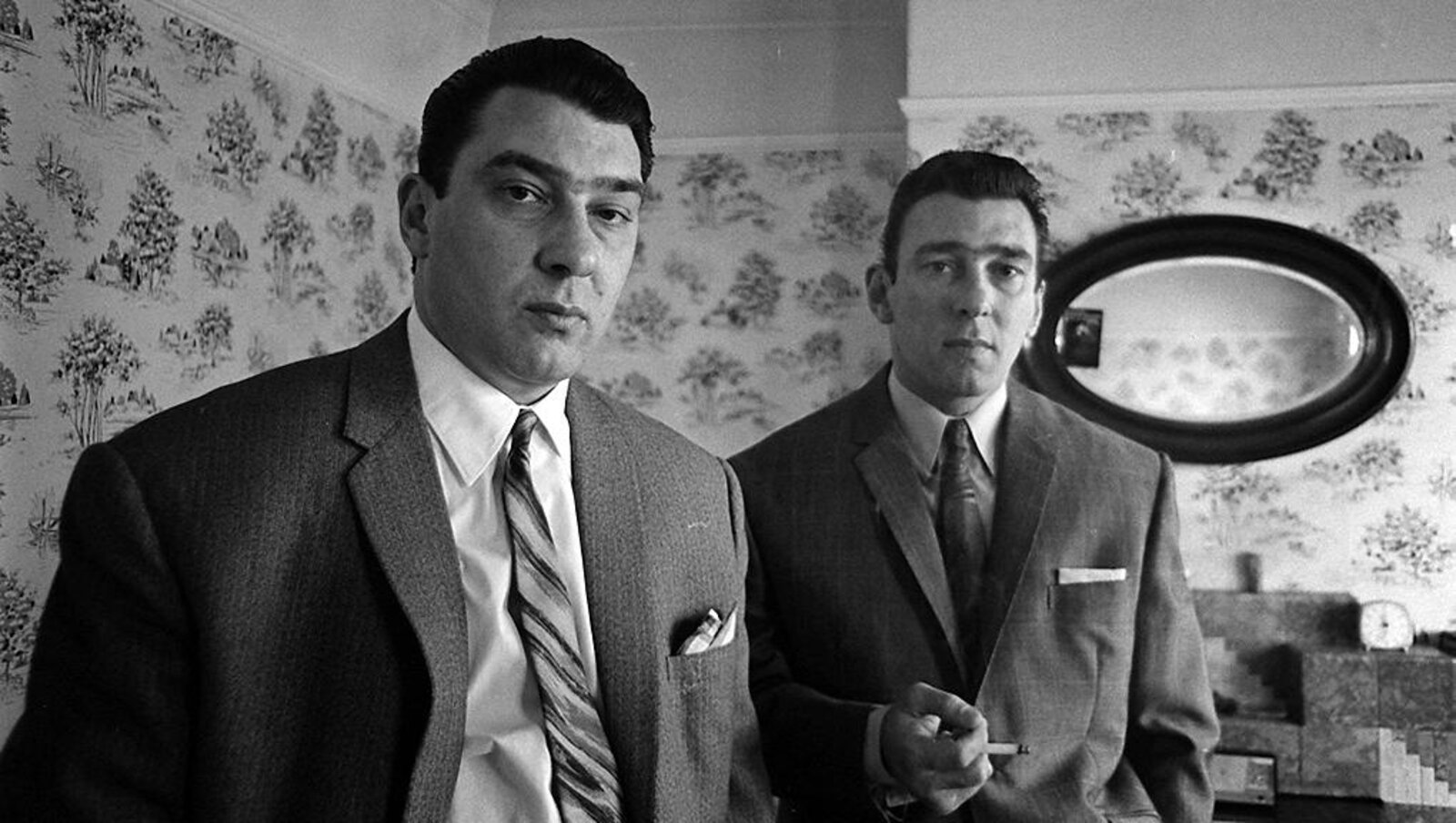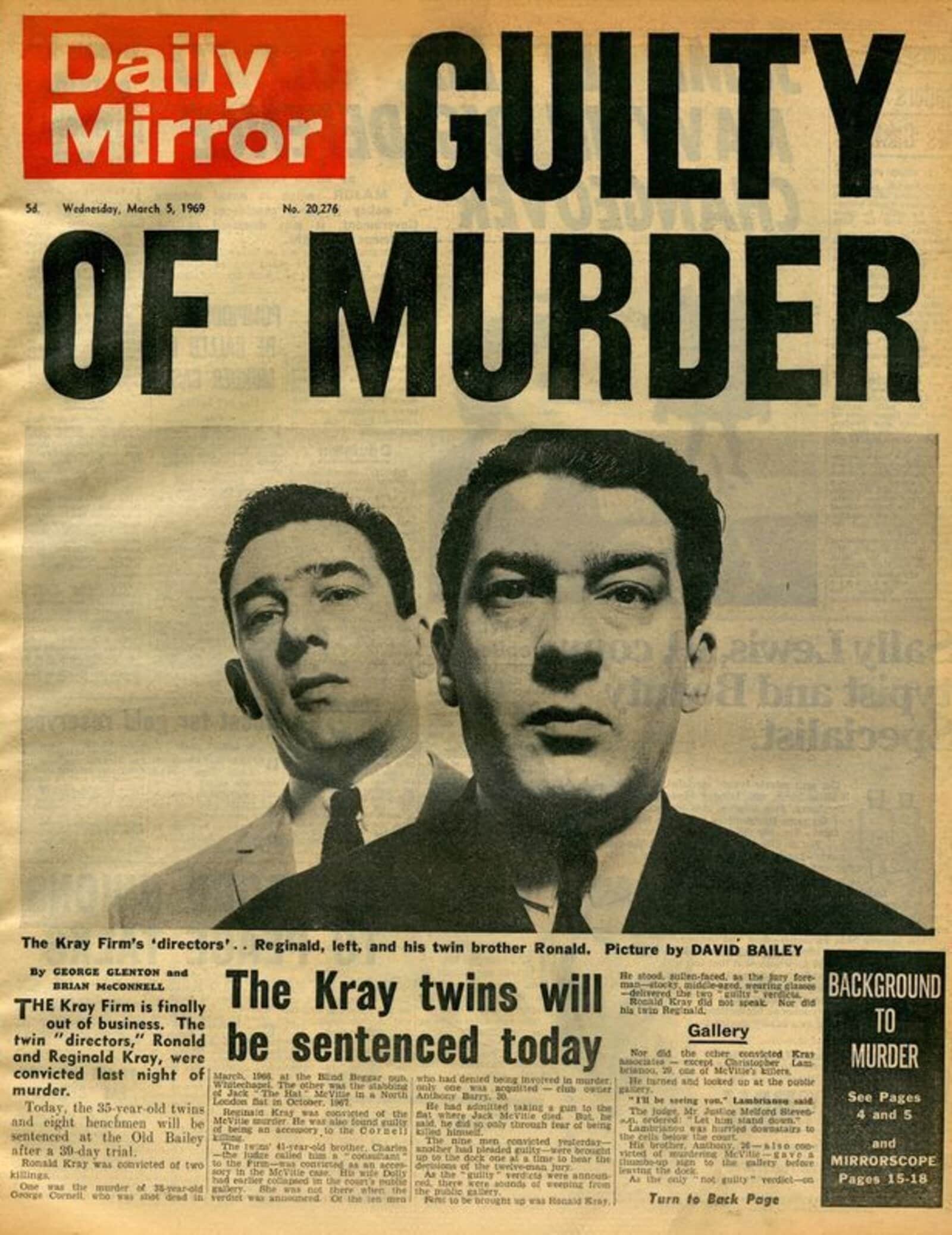
The Krays: Meet the infamous gangsters who ran 1960s London
Ronald & Reginald Kray were two of the most notorious criminals in the long history of criminality in London’s East End. Ronnie and Reggie, as they were often called, eschewed hiding in the shadows as many criminals tend to do. Instead the Kray twins lived flamboyant and violent lives in the public eye.
BritBox recently released a new three-part true crime documentary entitled Secrets of the Krays which traces the twins’ lives and crimes. The series features interviews with friends, relatives, fellow gang members, and the law enforcement officials that eventually brought the Kray twins to justice.
The violent and wild lives of the Krays have been chronicled in various films. 2015’s Legend stars Tom Hardy as both Ronnie and Reggie. The 1971 gangster film Villain stars Richard Burton as Vic Dakin, a sadistic East End gangster loosely based on both the Kray twins.

Early years
The Krays were born on October 24th, 1933, in Haggerston, East London. When they were three, the twins contracted diphtheria but both were able to recover from the disease. The boy’s grandfather Jimmy “Cannonball” Lee encouraged the boys to take up amateur boxing. The Kray twins took to boxing, with Reggie especially being considered a good young prospect.
In 1952, the Krays were called to do National Service in the British Army. This is where the Kray twins’ reign of terror began in earnest. They were arrested and given to the army after Ronnie assaulted a corporal who was giving them orders. The ungovernable twins later attacked a police officer while they were absent without leave. They were court-martialed, imprisoned, and dishonorably discharged.
While in military jail, the Krays’ behavior only spiraled out of control. They threw tantrums, started fires, and violently attacked guards. Ronnie & Reggie attacked a guard with a vase and then escaped. While they were quickly captured, the military decided to send them to a civilian prison to serve the remainder of their sentence.

New celebrities
Following their release from prison, the Krays bought a nightclub and sought to expand their criminal enterprise. They began running protection rackets and acting out violent retribution against those who wouldn’t pay up. Robberies, arson, and hijacking empowered the twins and they expanded rapidly, buying up other nightclubs and properties.
The Krays quickly became well known in the swinging London nightclub scene. They socialized openly with British politicians as well as celebrities of the time including Frank Sinatra, Liza Minnelli, Jayne Mansfield, Peter Sellers, and Judy Garland among others.
Ronnie was fearlessly open about his sexuality. He was queer and had relationships with men & women. It was suggested that in the early sixties Ronnie was in a sexual relationship with Lord Boothby, a Conservative politician.

The fall
Ronnie Kray shot & killed a member of a rival gang at a pub in Whitechapel in 1966. Some say Ronnie shot the man because he called him a homophobic slur at a prior confrontation. Witnesses refused to testify exactly as to what happened at the pub, fearing violent retribution from the Krays’ gang.
In 1967, the Krays killed an associate of their gang named Jack “the Hat” McVitie following an argument about McVitie’s failure to complete a hit for which he had been paid by the Kray twins. The murder sowed mistrust among the rest of the Kray gang, also known as the Firm. The twins’ behavior grew even more erratic.

Meanwhile, Scotland Yard had been collecting evidence and finally convinced witnesses to step forward. In 1968, the Kray brothers, and many members of the Firm, were arrested. Following the longest murder hearing in the history of Great Britain, the Kray twins were sentenced to life imprisonment.
Ronnie Kray was kept from other prisoners due to his violent & unpredictable outbursts. He was diagnosed with paranoid schizophrenia and sent to Broadmoor Hospital in Crowthorne, Berkshire where he remained until his death in 1995.
After being diagnosed with terminal bladder cancer, Reggie was granted a compassionate release. He lived the last few weeks of his life at the Townhouse Hotel in Norwich with Roberta, his wife of three years.



